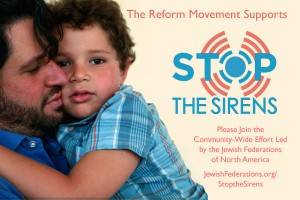I love Santa. As a boy growing up, my mom would dress me in my “Sunday Best” and take me to Macy’s to sit on the big guy’s lap and tell him about all the stuff I was supposed to get. This lovely tradition stopped when I started checking each Santa to see if the beard was real. The presents and the love however did not cease. Even way back then, Santa was an American experience that I enjoyed and fondly remember.
The Santa Claus experience was not rooted in my maternal line of Orthodox and Conservative Jewish generations preceding my mother. On my father’s side however, my Grandmother, a Southern Baptist, embraced Christmas and helped to push the borders of Judaism in our world.
My Grandma was a lady, full of grace in every sense of the words. She was elegant, kind, sweet, devoted and deeply loving. My grandfather and she fell in love while he was on the road as a traveling salesman staying in my great-grandmother’s boarding house in Dallas, TX (a wonderful story unto itself). They eventually returned with a child in tow to the Orthodox world of the Jewish Bronx. But Grandma never converted. Grandpa once remarked that he would never ask that of her, and for reasons of her own, she never did. Grandma did however fully support the raising of a Jewish family and I remember her actively participating in every holiday and ritual, even including supporting the State of Israel. I recall her standing with me at my Bar Mitzvah, lighting the Chanukiah and making latkes, and so many more experiences too numerous to mention. She could not have been more involved or a more important part of my Jewish identity and upbringing even though she remained a Southern Baptist.
As a way to honor my Grandma, we celebrated Christmas. It was a time that the Levin family gathered together to share a family meal and exchange presents. In actuality, the kids received the presents. I remember sitting in Grandma’s living room in the apartment on Schenk Avenue surrounded by wrapped boxes impatiently waiting for my turn to open them up; we opened gifts one at a time according to age, so that each child would savor the experience. We usually came to this celebration wearing the new cowboy boots and cowboy shirt with the snap buttons that Grandma had already bought each of us, a nod to our Dallas heritage. My mom struggled for years with the Christmas tree, but eventually she learned to embrace it. These childhood experiences were ones of love and warmth that remain in my heart.
My experience of Christmas is not religiously Christian. It is however deeply beautiful and meaningful and incorporates some of the best values religion has to offer. It has enriched my life and filled me with wonderful memories of people I hold dear. It has helped to shape me into the person and rabbi I am today. My concern is that I am able to share the wonderful blessings that I enjoyed with others.*
* A few of my colleagues are engaged in a conversation about the topic of Santa and Christmas in the public domain. These were my thoughts on the matter.

